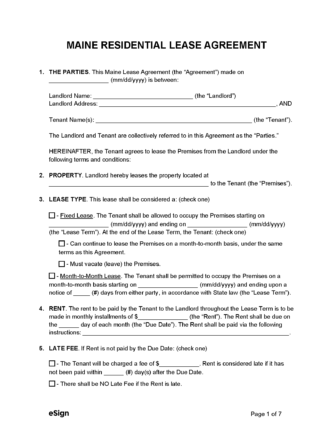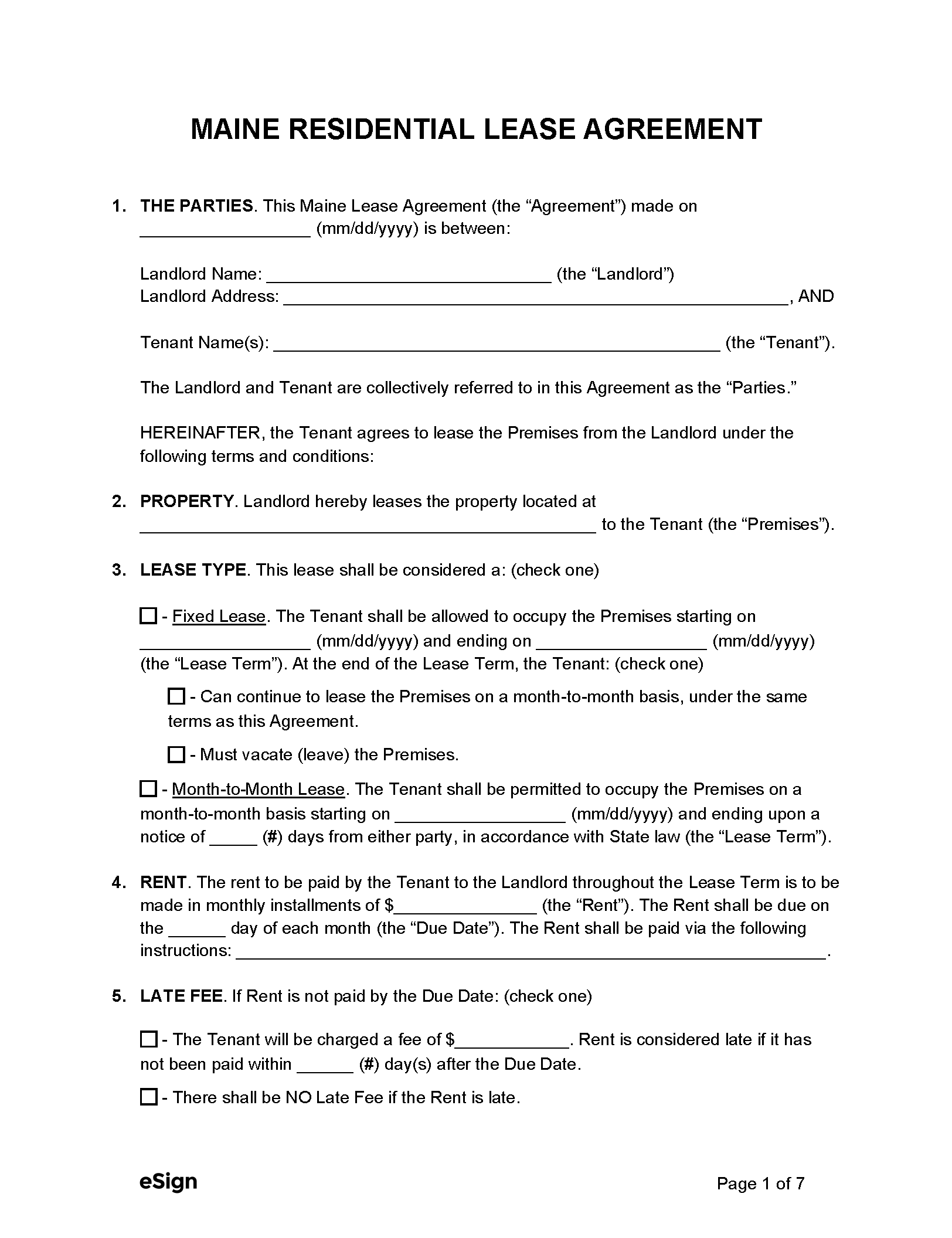
A Maine lease agreement is a real estate document that binds a tenant and a landlord to the terms of their rental arrangement. A lease protects both parties, ensuring they are aware of their respective rights and obligations. The tenant will have the right to use the rental property until the end of the lease term.
A Maine lease agreement is a real estate document that binds a tenant and a landlord to the terms of their rental arrangement. A lease protects both parties, ensuring they are aware of their respective rights and obligations. The tenant will have the right to use the rental property until the end of the lease term.
PDF Download
A Maine lease agreement is a real estate document that binds a tenant and a landlord to the terms of their rental arrangement. A lease protects both parties, ensuring they are aware of their respective rights and obligations. The tenant will have the right to use the rental property until the end of the lease term.
3 | 2 Ratings Downloads: 558
Rental Application – A document completed by a rental applicant and used by the landlord to ensure that their prospective tenant is a suitable candidate to rent the property.
Maximum Amount ($) – A landlord cannot charge an amount greater than two months’ rent as a security deposit. [9]
Collecting Interest – Interest doesn’t need to be collected on security deposits.
Returning to Tenant – The security deposit must be returned within 30 days for fixed-term leases and within 21 days for month-to-month tenancies. [11]
Itemized List Required? – Yes, the landlord must give the tenant a list of any deductions made to their deposit. [12]
Separate Bank Account? – Security deposits must be held in a separate bank account that places the amount beyond the claim of creditors. [13]
General Access – The landlord should provide 24 hours’ notice before accessing the property. [14]
Immediate Access – If the landlord needs to access the property in the case of an emergency, they can do so immediately and without warning. [15]
Grace Period – Landlords must give tenants 15 days from the rent due date before charging late fees. [16]
Maximum Late Fees ($) – A landlord may not charge more than 4% of the total cost of monthly rent. [17]
Bad Check (NSF) Fee – There are no state statutes regarding what a landlord may charge for bounced checks.
Withholding Rent – If the landlord doesn’t make necessary repairs after 14 days of receiving notice, the tenant may make the repairs and deduct the cost from their rent. However, the repair cost can’t exceed $500 or half the monthly rent, whichever is greater, and the landlord is entitled to receive an itemized statement of the costs. [18]
Non-Payment of Rent – If the tenant doesn’t make their rent payment on time, the landlord can give them a 7-day notice to quit. [19]
Non-Compliance – The landlord can give non-compliant tenants 7-days’ notice to fix their non-compliance or have their lease terminated. [20]
Lockouts – Although not specifically mentioned in state statutes, the landlord cannot change the tenant’s locks without a court order.
Leaving Before the End Date – If a tenant moves out of the property before their lease terminates, they may be held liable for unpaid rent covering the remainder of their lease term minus any earnings the landlord receives from rerenting the premises. [21]
Month-to-Month Tenancy – Both the tenant and landlord can terminate a monthly tenancy with 30 days’ notice. [22]
Unclaimed Property – If the tenant leaves any belongings behind after moving out, the landlord must put them in safe storage and give notice to the tenant. The tenant must collect the property within 7 days of receiving notice or 14 days if they respond to the notice. After this period, the landlord may sell the property to cover storage costs, damages, and rent owed, with any excess funds given to the Treasurer of State. [23]